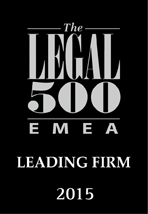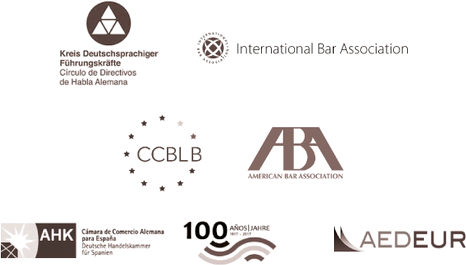
Now it’s the lawyers!
19/10/16
On 15 September 2016, the Council of the Spanish NCA (‘CNMC’) adopted two decisions fining the Madrid Bar Association (ICAM) and the Alcalá de Henares Bar Association (ICAAH), respectively. The CNMC again raises a recurrent but not undisputed subject-matter: are the ‘criteria’ for professional fees adopted by Bar Associations legal? The CNMC denied that they were, even though it was a controversial subject, as one may infer from the dissenting opinion of Counsellor F. Torremocha.
This is particularly hot news considering that last June the CNMC also published the opening of formal proceedings against several bar associations in Spain (Case S/DC/0587/16). As the topic allows for much debate, we will simply highlight here some questions that do raise serious conceptual doubts:
- Competence: the decisions against ICAM and ICAAH go back to a file investigated by the Competition Service of the Madrid Region and subsequently decided by the CNMC, as foreseen under the collaboration agreement between both authorities. Conversely, the CNMC directly opened Case S/DC/0587/16 without providing for any role to be played by regional competition authority. It is perhaps too soon to draw conclusions. However, it is surprising that that the CNMC should have opened these new proceedings, since up to now a professional association was dealt with by the regional competition authority in whose territory such association was active.
- ‘Scales’ vs. ‘criteria’: the two fining decisions emphasise that the CNC had already warned that it saw a need for a semantic distinction between setting (i) scales for professional fees, i.e., price lists; and (ii) criteria for professional fees, i.e., a range of concepts that any lawyer should take into account when freely pricing their services. In tyeh CNMC’s own view this distinction is fundamental to correctly interpret the 4th Additional Provision of the Professional Associations Act, which provides for an exception to the general prohibition on fixing professional fees. In its two new decisions, CNMC maintains this position and fines the two Bars accordingly.
The CNMC’s reading raises, we find, two conceptual issues: one, of what use the 4th Additional Provision of the Professional Associations Act might be; and two, why someone felt it was necessary to create an ‘exception’ to the general prohibition just to allow for ‘criteria’ as defined by the CNMC when these cannot possibly be objectionable from a competition law perspective. There might be a semantic difference, but we wonder if, in the context of an appeal about a lawyer’s fees – where the discussion is precisely about the exact price to be charged – it is extremely useful for the judge if the Bar points at a bunch of generalities such as the difficulty of the case, workload, technical complexity, etc. Moreover, the judge will presumably be much more familiar with these features of the case than the Bar. In other words, even if the words are different (scales vs. criteria) we very much doubt that the legislator’s true intention when adopting the 4th Additional Provision of the Professional Associations Act was simply to ask the Bar to ramble about ‘criteria’ within the meaning that the CNMC gives to this term.
- For/against publication: the CNMC seems to attach particular importance to publication of ‘criteria’ or ‘scales’ and to whether they were publicly available. Again, we miss the practical perspective. What can possibly tell a citizen that professional fees are reasonable – those of the opposite party, needless to say, since that citizen will have negotiated their own lawyer’s fees beforehand? We must bear in mind that we are talking about appeals concerning professional fees and that such appeals – let us be clear, because this is what the law is all about – are about the exact amount of professional fees due and not about an array of generalities that are completely useless both for citizens and the courts. How on earth is a Bar Association, when asked by a court, to state a reasonable level of fees without quoting a figure?
To be continued…


